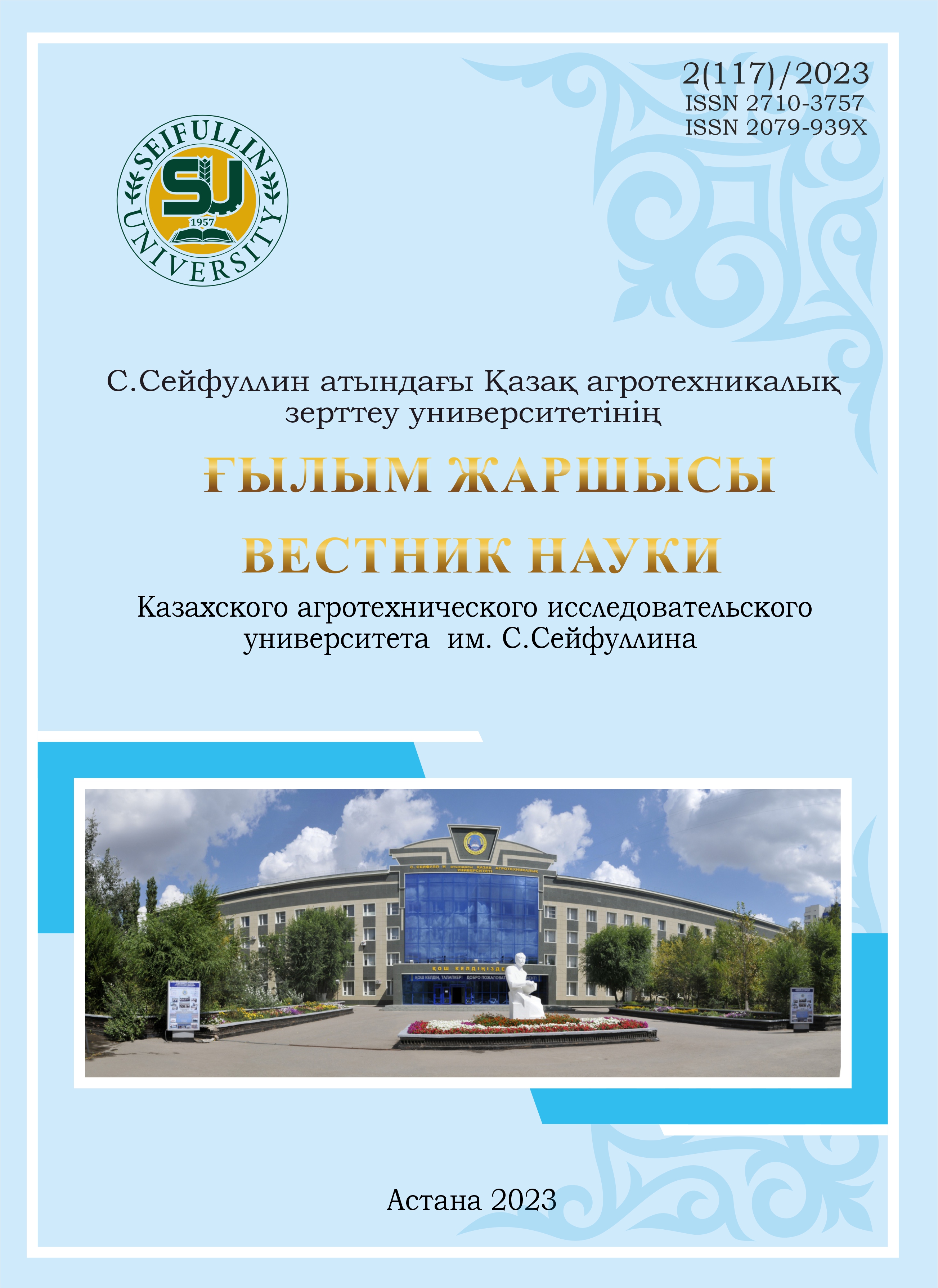THE EFFICIENCY OF ECOLOGIZED SYSTEMS OF PROTECTION OF RAPESEED CROPS (BRASSICA NAPUS L.) AGAINST HARMFUL ORGANISMS IN THE CONDITIONS OF THE AKMOLA REGION
DOI:
https://doi.org/10.51452/kazatu.2023.2(117).1403Keywords:
rapeseed; Brassica napus L; pests; diseases; pesticides; ecologized plant protection systems.Abstract
Rapeseed is one of the most important oilseeds in the world, which is used as edible oil, technical oil and feed. Currently, farmers in the cultivation of rapeseed face some rather serious agronomic problems, especially with regard to pests and diseases, which in some cases make it extremely difficult to regularly grow rapeseed. The use of high doses of pesticides in rapeseed fields leads to the spread of drug resistance, and also negatively affects the environment. To study the condition of rapeseed crop (Maily Dan) in the Akmola region, we conducted studies of the level of pest and weed infestation. As a means of protection, an ecologized scheme was used with the addition of growth stimulants Zerebro Agro, fertilizers GrosPhosphite-LNPK together with classical preparations. Biological efficiency in pest control was at the level of the reference scheme: the standard against cabbage moth caterpillars was 84.8%, the ecologized scheme (ES) was 83.8%; against the cruciferous flea, the standard was 95%, ES – 94.2%, against the rapeseed flower eater and cabbage white caterpillars, both schemes showed identical results – 100% and 70%, respectively. In the fight against herbicides, the effectiveness was 41.4% with the reference scheme, 32.1% with the ES variant. The economic value was 61.3 c/ha when the preparations Zerebro Agro and GrosPhosphite-LNPK were added to the protection scheme, with a reference value of 57.1 c/ha. The results obtained in the period 2021-2020 show the possibility of using the developed schemes for the protection of rapeseed crops in the conditions of the Akmola region and can reduce the negative effect of the use of pesticides and improve the overall condition of crops.

